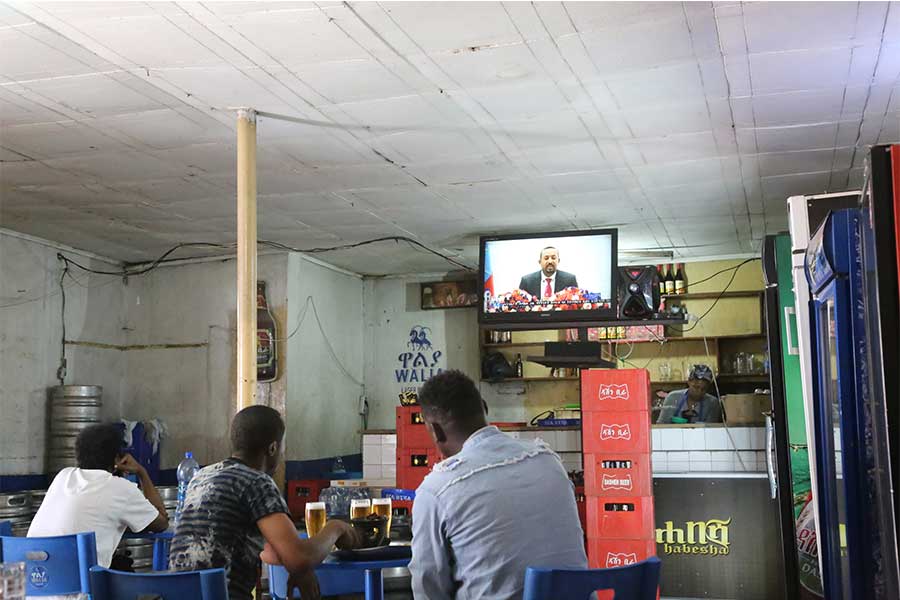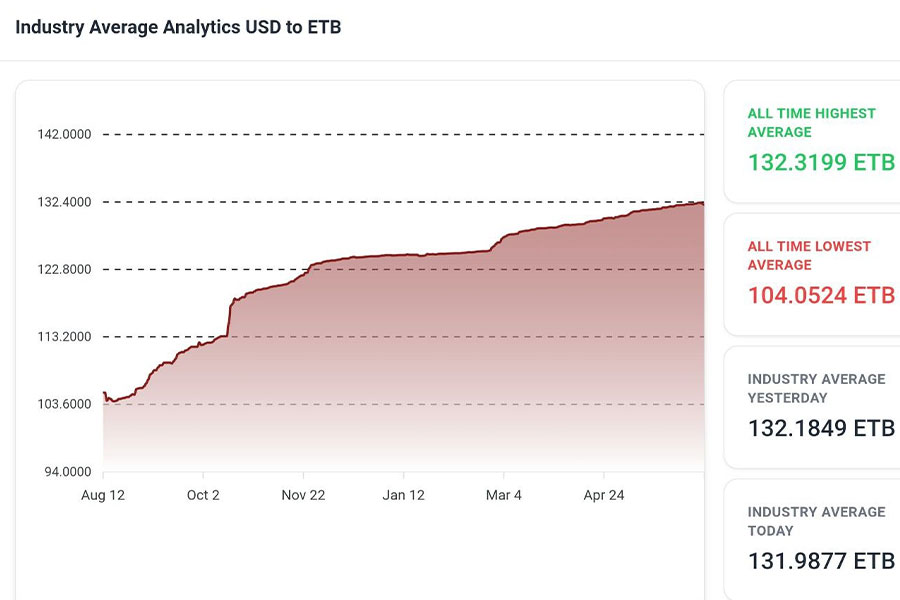
Aug 31 , 2019
By Nouriel Roubini
Unlike the 2008 global financial crisis, which was mostly a large negative aggregate demand shock, the next recession is likely to be caused by permanent negative supply shocks from the Sino-American trade and technology war. And trying to undo the damage through never-ending monetary and fiscal stimulus will not be an option.
There are three negative supply shocks that could trigger a global recession by 2020. All of them reflect political factors affecting international relations, two involve China, and the United States is at the centre of each. Moreover, none of them is amenable to the traditional tools of countercyclical macroeconomic policy.
The first potential shock stems from the Sino-American trade and currency war, which escalated earlier this month when US President Donald Trump’s administration threatened additional tariffs on Chinese exports and formally labeled China a currency manipulator. The second concerns the slow-brewing cold war between the US and China over technology. In a rivalry that has all the hallmarks of a “Thucydides Trap,” China and America are vying for dominance over the industries of the future: artificial intelligence (AI), robotics, 5G, and so forth. The US has placed the Chinese telecom giant Huawei on an “entity list” reserved for foreign companies deemed to pose a national-security threat. And although Huawei has received temporary exemptions allowing it to continue using US components, the Trump administration this week announced that it was adding an additional 46 Huawei affiliates to the list.
The third major risk concerns oil supplies. Although oil prices have fallen in recent weeks, and a recession triggered by a trade, currency, and tech war would depress energy demand and drive prices lower, America’s confrontation with Iran could have the opposite effect. Should that conflict escalate into a military conflict, global oil prices could spike and bring on a recession, as happened during previous Middle East conflagrations in 1973, 1979 and 1990.
All three of these potential shocks would have a stagflationary effect, increasing the price of imported consumer goods, intermediate inputs, technological components and energy, while reducing output by disrupting global supply chains. Worse, the Sino-American conflict is already fueling a broader process of deglobalisation, because countries and firms can no longer count on the long-term stability of these integrated value chains. As trade in goods, services, capital, labor, information, data and technology becomes increasingly balkanised, global production costs will rise across all industries.
Moreover, the trade and currency war and the competition over technology will amplify one another. Consider the case of Huawei, which is currently a global leader in 5G equipment. This technology will soon be the standard form of connectivity for most critical civilian and military infrastructure, not to mention basic consumer goods that are connected through the emerging Internet of Things. The presence of a 5G chip implies that anything from a toaster to a coffee maker could become a listening device. This means that if Huawei is widely perceived as a national security threat, so would thousands of Chinese consumer-goods exports.
It is easy to imagine how today’s situation could lead to a full-scale implosion of the open global trading system. The question, then, is whether monetary and fiscal policymakers are prepared for a sustained – or even permanent – negative supply shock.
Following the stagflationary shocks of the 1970s, monetary policymakers responded by tightening monetary policy. Today, however, major central banks such as the US Federal Reserve are already pursuing monetary-policy easing, because inflation and inflation expectations remain low. Any inflationary pressure from an oil shock will be perceived by central banks as merely a price-level effect, rather than as a persistent increase in inflation.
Over time, negative supply shocks tend also to become temporary negative demand shocks that reduce both growth and inflation, by depressing consumption and capital expenditures. Indeed, under current conditions, US and global corporate capital spending is severely depressed, owing to uncertainties about the likelihood, severity and persistence of the three potential shocks.
In fact, with firms in the US, Europe, China and other parts of Asia having reined in capital expenditures, the global tech, manufacturing and industrial sector is already in a recession. The only reason why that hasn’t yet translated into a global slump is that private consumption has remained strong. Should the price of imported goods rise further as a result of any of these negative supply shocks, real (inflation-adjusted) disposable household income growth would take a hit, as would consumer confidence, likely tipping the global economy into a recession.
Given the potential for a negative aggregate demand shock in the short run, central banks are right to ease policy rates. But fiscal policymakers should also be preparing a similar short-term response. A sharp decline in growth and aggregate demand would call for countercyclical fiscal easing to prevent the recession from becoming too severe.
In the medium term, though, the optimal response would not be to accommodate the negative supply shocks, but rather to adjust to them without further easing. After all, the negative supply shocks from a trade and technology war would be more or less permanent, as would the reduction in potential growth. The same applies to Brexit: leaving the European Union will saddle the United Kingdom with a permanent negative supply shock, and thus permanently lower potential growth.
Such shocks cannot be reversed through monetary or fiscal policy making. Although they can be managed in the short term, attempts to accommodate them permanently would eventually lead to both inflation and inflation expectations rising well above central banks’ targets. In the 1970s, central banks accommodated two major oil shocks. The result was persistently rising inflation and inflation expectations, unsustainable fiscal deficits, and public-debt accumulation.
Finally, there is an important difference between the 2008 global financial crisis and the negative supply shocks that could hit the global economy today. Because the former was mostly a large negative aggregate demand shock that depressed growth and inflation, it was appropriately met with monetary and fiscal stimulus. But this time, the world would be confronting sustained negative supply shocks that would require a very different kind of policy response over the medium term. Trying to undo the damage through never-ending monetary and fiscal stimulus will not be a sensible option.
PUBLISHED ON
Aug 31,2019 [ VOL
20 , NO
1009]


My Opinion | Dec 23,2023

Viewpoints | Mar 18,2023

Commentaries | Feb 12,2022

Commentaries | Mar 02,2019

Radar | Nov 26,2022

Fortune News | Nov 19,2022

Agenda | Aug 10,2019

Money Market Watch | Jun 15,2025

Commentaries | Sep 11,2020

Viewpoints | Oct 16,2020

My Opinion | 131674 Views | Aug 14,2021

My Opinion | 128040 Views | Aug 21,2021

My Opinion | 126002 Views | Sep 10,2021

My Opinion | 123625 Views | Aug 07,2021

Dec 22 , 2024 . By TIZITA SHEWAFERAW
Charged with transforming colossal state-owned enterprises into modern and competitiv...

Aug 18 , 2024 . By AKSAH ITALO
Although predictable Yonas Zerihun's job in the ride-hailing service is not immune to...

Jul 28 , 2024 . By TIZITA SHEWAFERAW
Unhabitual, perhaps too many, Samuel Gebreyohannes, 38, used to occasionally enjoy a couple of beers at breakfast. However, he recently swit...

Jul 13 , 2024 . By AKSAH ITALO
Investors who rely on tractors, trucks, and field vehicles for commuting, transporting commodities, and f...

Jun 28 , 2025
Meseret Damtie, the assertive auditor general, has never been shy about naming names...

Jun 21 , 2025
A well-worn adage says, “Budget is not destiny, but it is direction.” Examining t...

Jun 14 , 2025
Yet again, the Horn of Africa is bracing for trouble. A region already frayed by wars...

Jun 7 , 2025
Few promises shine brighter in Addis Abeba than the pledge of a roof for every family...

Jun 29 , 2025
Addis Abeba's first rains have coincided with a sweeping rise in private school tuition, prompting the city's education...

Jun 29 , 2025 . By BEZAWIT HULUAGER
Central Bank Governor Mamo Mihretu claimed a bold reconfiguration of monetary policy...

Jun 29 , 2025 . By BEZAWIT HULUAGER
The federal government is betting on a sweeping overhaul of the driver licensing regi...

Jun 29 , 2025 . By NAHOM AYELE
Gadaa Bank has listed 1.2 million shares on the Ethiopian Securities Exchange (ESX),...